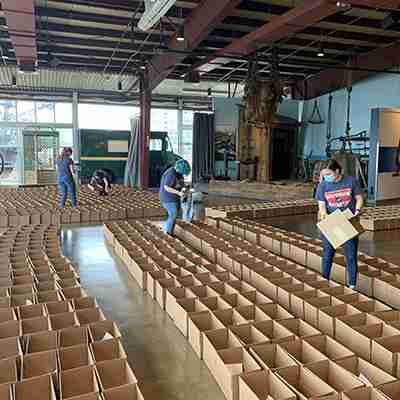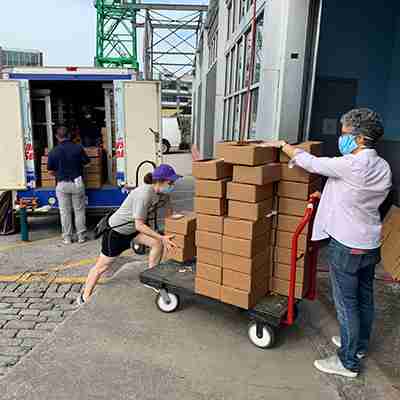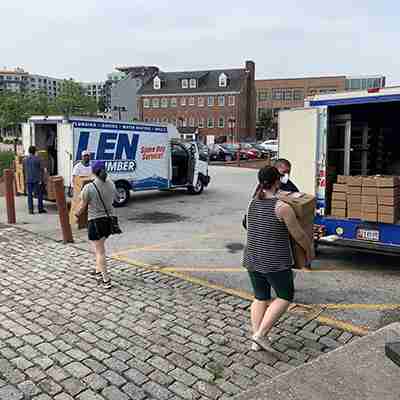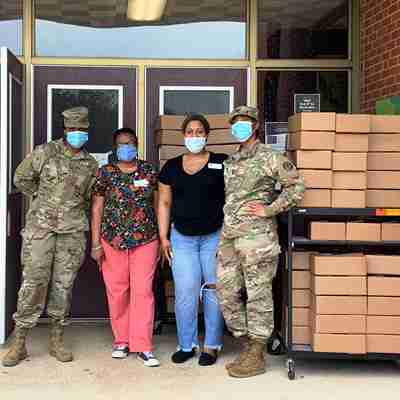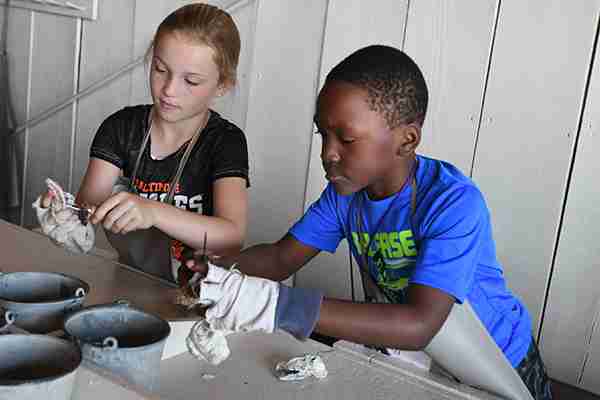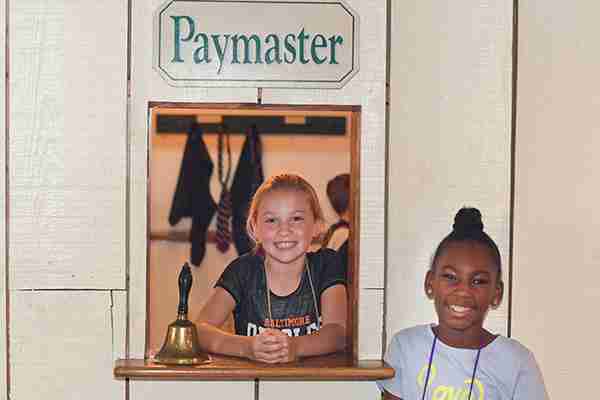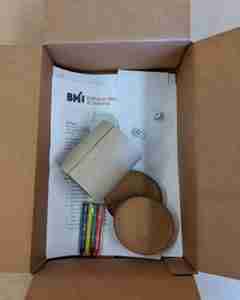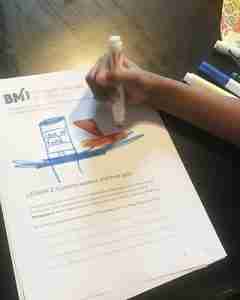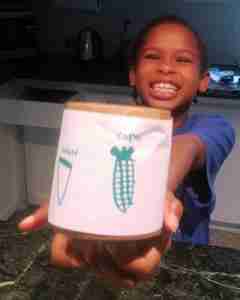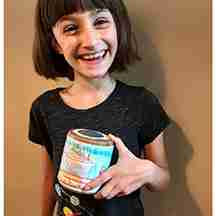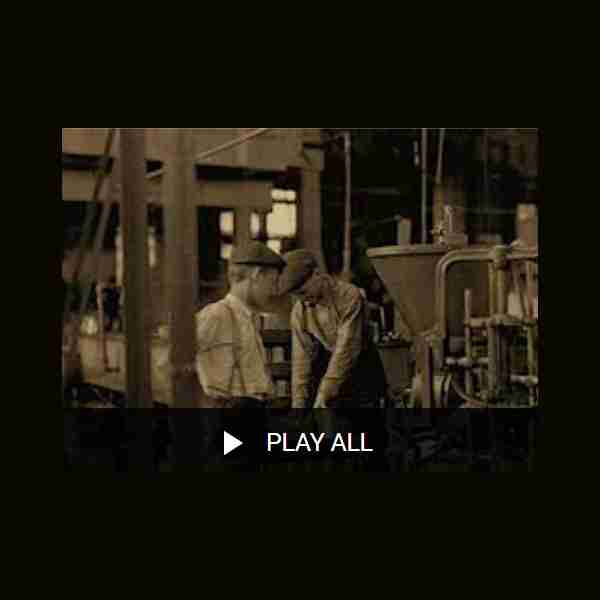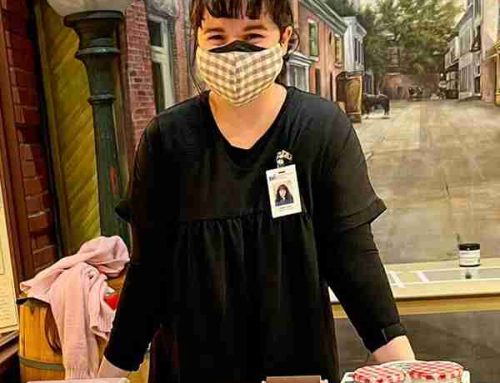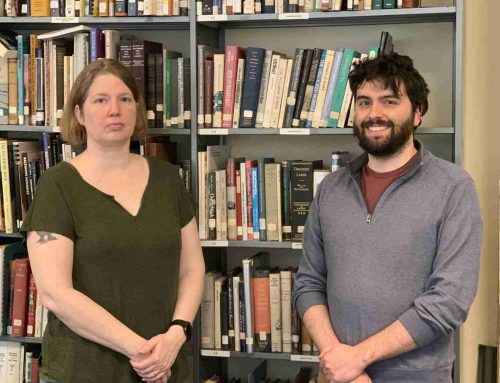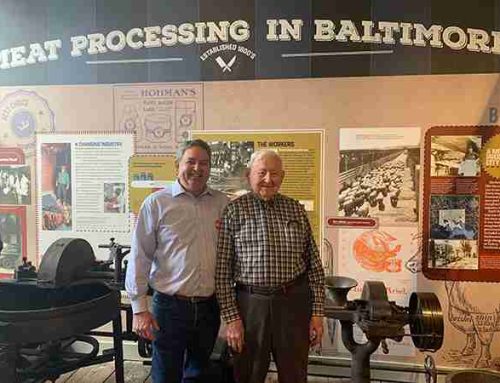As COVID-19 closed up schools and cancelled field trips for thousands of local children, the BMI worked to recreate the learning kids would typically experience while on field trips to the museum. The first City Kit—a boxed activity kit for school children—was inspired by the BMI’s award-winning Kids’ Cannery program, an immersive experience for grades 3-8.
The BMI partnered with Baltimore City Public Schools and Great Kids Farm to advise on the creation and distribution of the kits. The guidance of these partners was key in making sure that the kit was aligned, accessible, and available to as many students as possible. The initial 2,000 kits were assembled at the BMI this past spring and handed out free to students in Baltimore City at meal distribution sites. Two BMI trustees—Len the Plumber CEO Jeff Cooper and Tulkoff Food Products President Phil Tulkoff—helped the initiative by providing the use of company trucks to help in the distribution effort.
“We know that students love the hands-on learning that takes place in our Kids’ Cannery experience at the museum, and we wanted to replicate that for children who are not able to visit during this pandemic,” says Beth Maloney, Director of Interpretation at the BMI, who headed up the team of museum educators who designed the kits. “This will provide an analog experience to help fill in learning during the digital divide.”
In the Kids’ Cannery field trip program, students assume the roles of managers, foremen, can-makers, printers, labelers, steamers, shuckers, and can-fillers in an 1883 oyster cannery. In doing so, they learn about the training and wages of skilled and unskilled workers, and the types of work different groups could access. Students are “paid” for their work in tokens that they redeem in the company store, where they quickly grasp the value of a day’s work. All students take home a can of “oysters” that they helped to create.
The City Kit incorporates much of this learning into a boxed kit. Aligned with the state social studies curriculum, the activities inspire students to think about the work involved in the process of preparing, preserving, and providing food to communities. The City Kit enables students to delve into topics that they are learning in their classes in new ways.
Each kit contains four lessons. The first two encourage students to closely investigate and interpret historic maps and photographs as they answer questions on the canning industry and its workers. The third lesson involves hands-on learning as students are guided through the steps involved in making their own cardboard can for vegetables. The fourth lesson allows students to flex their math muscles through a dice game that helps them learn the steps involved in building a successful canning business. Each kit is complete with the lesson packets, components to make a cardboard can, crayons, and dice. Instructions have been translated into Spanish for schools that serve Spanish-language communities.
Since the initial launch of the Kids’ Cannery kits, the BMI has created a STEM-focused City Kit as well. Based on the museum’s Lights On! program, this new activity box explores different methods for communicating by having students test their skills at Morse Code and create a light communication device.
City Kits are made possible through the support of the Downtown Partnership of Baltimore, The Edmund Eisenberg Memorial Foundation, Janet Novak, Northrop Grumman, and Green Bay Packaging.
Learn more about hands-on learning experiences and virtual experiences for schools and homeschoolers.
City Kits for Student Groups
Grades 1-8
Virtual Field Trips
YouTube Playlist for Students
Visit the BMI’s Connection Factory to connect with stories that show how education, exhibitions, and partnerships strengthen our community.
